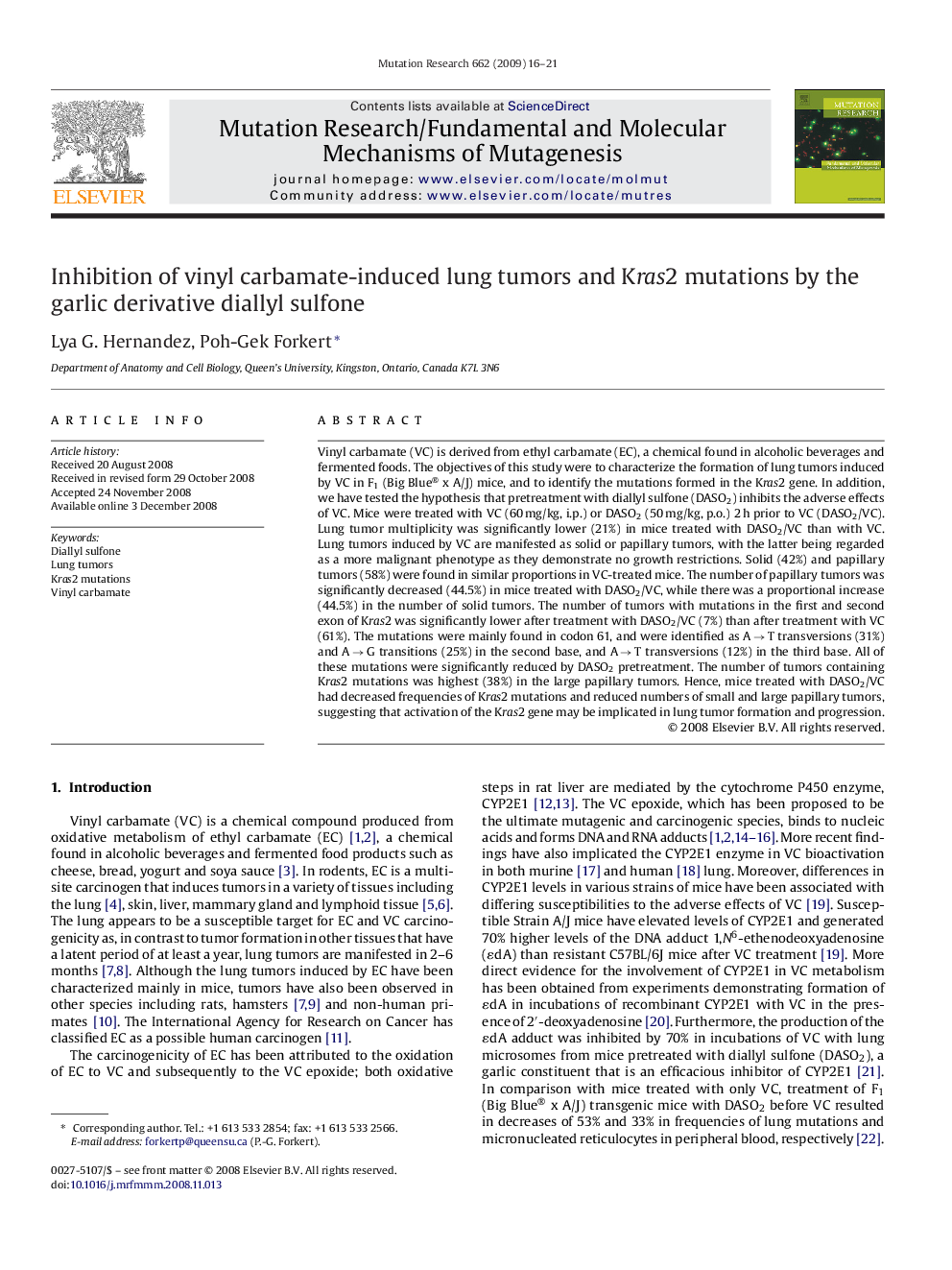| Article ID | Journal | Published Year | Pages | File Type |
|---|---|---|---|---|
| 2147073 | Mutation Research/Fundamental and Molecular Mechanisms of Mutagenesis | 2009 | 6 Pages |
Vinyl carbamate (VC) is derived from ethyl carbamate (EC), a chemical found in alcoholic beverages and fermented foods. The objectives of this study were to characterize the formation of lung tumors induced by VC in F1 (Big Blue® x A/J) mice, and to identify the mutations formed in the Kras2 gene. In addition, we have tested the hypothesis that pretreatment with diallyl sulfone (DASO2) inhibits the adverse effects of VC. Mice were treated with VC (60 mg/kg, i.p.) or DASO2 (50 mg/kg, p.o.) 2 h prior to VC (DASO2/VC). Lung tumor multiplicity was significantly lower (21%) in mice treated with DASO2/VC than with VC. Lung tumors induced by VC are manifested as solid or papillary tumors, with the latter being regarded as a more malignant phenotype as they demonstrate no growth restrictions. Solid (42%) and papillary tumors (58%) were found in similar proportions in VC-treated mice. The number of papillary tumors was significantly decreased (44.5%) in mice treated with DASO2/VC, while there was a proportional increase (44.5%) in the number of solid tumors. The number of tumors with mutations in the first and second exon of Kras2 was significantly lower after treatment with DASO2/VC (7%) than after treatment with VC (61%). The mutations were mainly found in codon 61, and were identified as A → T transversions (31%) and A → G transitions (25%) in the second base, and A → T transversions (12%) in the third base. All of these mutations were significantly reduced by DASO2 pretreatment. The number of tumors containing Kras2 mutations was highest (38%) in the large papillary tumors. Hence, mice treated with DASO2/VC had decreased frequencies of Kras2 mutations and reduced numbers of small and large papillary tumors, suggesting that activation of the Kras2 gene may be implicated in lung tumor formation and progression.
